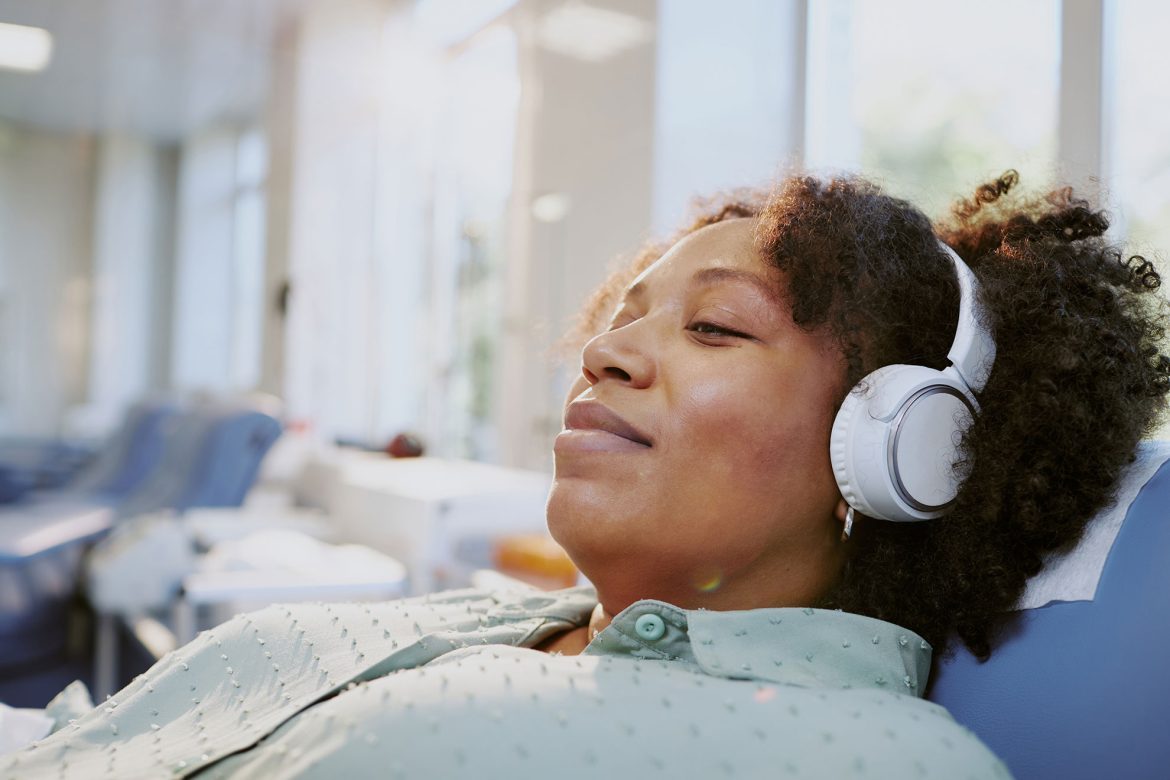Health
With charms to soothe savage back pain
Music appears to decrease anxiety, discomfort in ER patients, study finds
Playwright William Congreve wrote in the Restoration period that music “hath charms to soothe a savage breast.” And, as it turns out, back pain in 21st-century patients as well.
Back pain is a widespread problem across the nation, and its causes are often complex and difficult to treat with traditional medications. Millions annually suffer cases so acute they end up in emergency rooms.
A new Harvard study has found that patients who listened to music while in the emergency department for back pain showed decreased anxiety levels, which in turn decreased discomfort.
“There are a lot of reasons why people have back pain. It can be nerve-related, spinal cord issues, nerve compression — all of which don’t have a quick solution,” said Charlotte Goldfine, lead author and instructor in emergency medicine at Harvard Medical School. “Often we are using temporary methods like anti-inflammatory medications or analgesics, and in severe cases, opioid medications.”
There are more than 2.6 million emergency department visits for pain in the U.S. each year, the study states. That’s 4.4 percent of all emergency department visits worldwide. Following the success of music therapy in other areas of medicine, Goldfine said the team made the leap that the intervention could show success for emergency back-pain patients.
“Music has been used in other settings and studied in the pre- and peri-operative space, as well as with pain management,” she said. “We were really thinking through how we could translate the work that had already been done in patients who were getting procedures or who had more painful scenarios. What we found is that it’s also a very easily deployable solution.”
Scott Weiner, co-author of the study, added that besides the ease of implementation — simply providing headphones and a music player to patients — the intervention is extremely cost-effective. Weiner is an associate professor of emergency medicine at Harvard Medical School and an emergency physician at Brigham and Women’s Hospital.
“I drew inspiration from another similar study that looked at adult coloring books given to patients. It seems like just something to get your mind off of it, whether it be reading or music or coloring, is probably helpful.”
Scott Weiner, co-author of the study
“It’s completely free besides the subscription for the music,” Weiner said.
The reason why the intervention is especially helpful, both Weiner and Goldfine said, is not because it targets root causes of the pain but because it may reduce exacerbating anxiety.
“Thinking about this originally, I drew inspiration from another similar study that looked at adult coloring books given to patients,” Weiner said. “It seems like just something to get your mind off of it, whether it be reading or music or coloring, is probably helpful.”
Emergency room patients often face overcrowded conditions and long waits, even when experiencing severe pain.
“It’s stressful because you’re there watching everything unfold,” Weiner said. “There are beeps; there’s chaos; and plus, they’re in pain. So the fact that maybe this aspect of distraction was enough to reduce their pain and anxiety with basically no harm at all to the patient is pretty remarkable.”
In the experiment, patients selected music to listen to for 10 minutes. Doctors then surveyed their pain at rest and with movement on a 10-point scale, before and after, and had them complete an anxiety questionnaire.
“We had a lot of discussions over what the best type of music intervention to choose would be,” Goldfine said.
But ultimately, she said, the music that patients find relaxing is subjective. Some people used a curated relaxation playlist. Many chose pop music.
“There was some Taylor Swift in there,” Goldfine said.
She added that doctors and patients themselves can implement the lessons from the study right now.
“I try to use it when I’m doing procedures on patients,” she said. “I have them put on whatever song they want, because I feel like it really does enhance the experience and with really no downside.”
Goldfine, Weiner, and their team are continuing to study the impact of music therapy in medicine. Currently, a study is in the works looking at connections between music and substance-use disorder.

